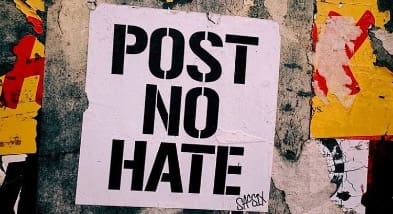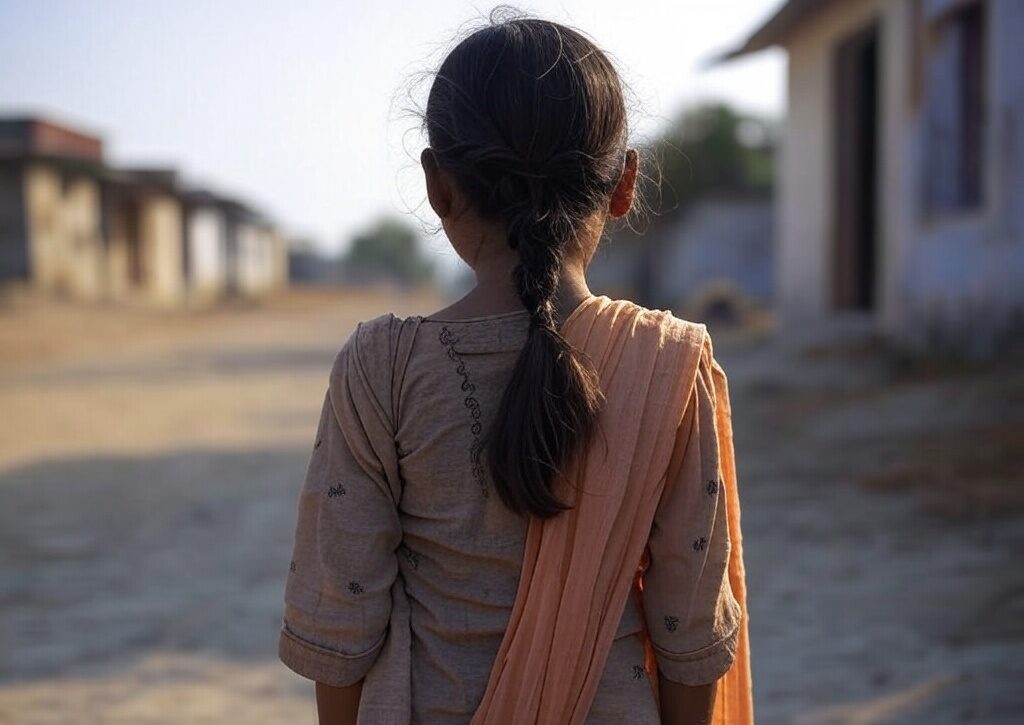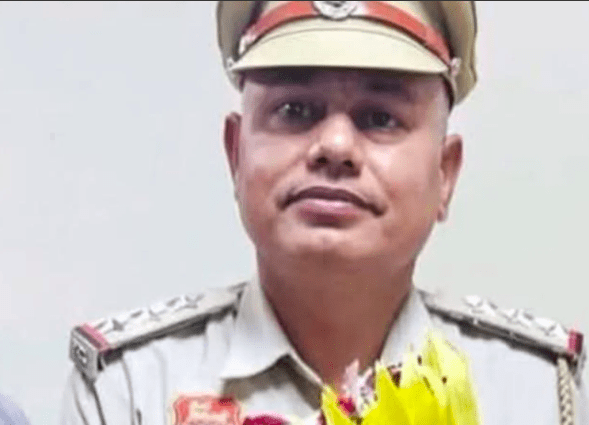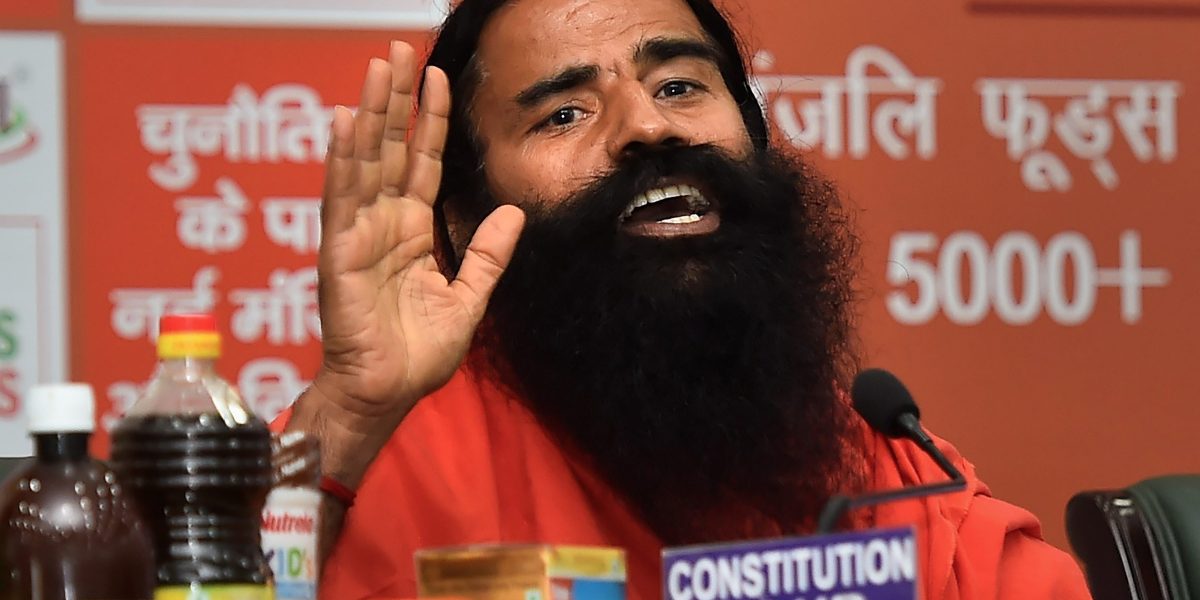
“The day before Eid when ‘chaand raat’ [the night of the first moon after Ramadan] takes place, the first greeting of ‘Eid Mubarak’ was always his. My ears are accustomed to listening to his voice for 12 years now,” the 35-year-old told Al Jazeera.
Her husband Khalid Saifi, 41, is a New Delhi-based businessman and co-founder of United Against Hate, a group formed to resist the politics of religious polarisation and hatred in India.
Saifi was arrested on February 26, 2020, amid the worst religious violence the Indian capital had seen in decades, in which at least 53 people, most of them Muslims, were killed.
The violence in the city’s northeast erupted following nationwide protests against a controversial citizenship law Prime Minister Narendra Modi’s government had passed in late 2019.
The Citizenship Amendment Act (CAA) provides Indian citizenship to non-Muslim refugees from India’s neighbouring countries if they arrived before 2015.
Critics say the law violates India’s secular constitution and United Nations experts have called it “fundamentally discriminatory”.
Read together with a proposed National Register of Citizens (NRC) that Modi’s government was planning, India’s Muslims feared the moves were aimed at disenfranchising them.
Muslim groups organised huge protests across India against the law, with a women-led sit-in at New Delhi’s Shaheen Bagh locality being the epicentre.
The protests led to a severe backlash by Modi’s Bharatiya Janata Party (BJP) and other right-wing Hindu groups. Several BJP legislators addressed crowds calling for the protesters “to be shot” or attacked, calling Muslims “traitors and anti-nationals”.
The hate speech led to violence in northeastern parts of Delhi. Apart from the deaths, dozens of homes and mosques were torched, and hundreds were forced to leave those neighbourhoods.
In the wake of the violence, the BJP-controlled police in the capital rounded up several Muslim activists, students and scholars who had protested against CAA. Khalid was one of them.
This video exposes Delhi Police's lies & brutalities. It shows how they made victims into perpetrators. Khalid Saifi is not a rioter as police claims. On 26 Feb, he went to talk to police but they arrested him. Days later, in court, he was on a wheelchair. #ReleaseKhalidAndIshrat pic.twitter.com/pT2gq740c2
— Nabiya Khan | نبیہ خان (@NabiyaKhan11) July 28, 2020
Nargis recounts the “horrifying morning” when Saifi was arrested.
“Our home was filled with family members when he was arrested. When he told me he was being shifted to a jail, I fainted. I couldn’t comprehend,” she told Al Jazeera over telephone.
“When I gained consciousness, my mother kept asking me what he had said and I only managed to say police have taken him away.”
While Saifi was able to secure bail in some cases, he continues to languish in jail under the draconian Unlawful Activities Prevention Act (UAPA) along with several other Muslim activists.
‘Children grew up before time’
More than two years since Saifi’s arrest, his wife and three children – Yasa Ibrahim, 13; Mohammad Taha, 11; and Maryam, 8 – are still learning to cope with his absence.
“I have seen my children grow up before time,” Nargis said. “They keep saying if abbu [father] was here, we would have so much fun and do so many things together.”
Nargis says their youngest child, Maryam, is the most attached to her father and often speaks about him openly. “I tease her saying your father is very bad. When he comes back, you stay with him and I will go to my mother,” says Nargis, her voice choking.
Their sons, on the other hand, have taken it differently, according to the mother.
“If any guest visits, Taha will sit with them for a while but Yasa has become lost and reserved. They have heard so much about Khalid’s case in two years that it has really changed their reactions now,” Nargis says.
“They don’t express or share their feelings about what has happened with Khalid or his absence. Some days I get frustrated and my anxiety is triggered. Then I don’t feel like talking or laughing and I find myself crying.”
Nargis says her husband’s absence is most piquant during Ramadan and the Eid al-Fitr festival that marks the end of the holy month.
“Khalid is very fond of eating and feeding people. Every Ramadan, there used to be eight to 10 feasts at our home or outside,” she told Al Jazeera, adding that she worries about the condition of his diabetes in jail.
“Khalid always had kofte [meatballs] for the first sehri [predawn meal] of Ramadan. I made it all these years but I stopped after his arrest. Only this year, I made them again remembering him because my sons asked for it.”
Nargis also says she is facing financial difficulties since her husband’s arrest.
“It is not possible to do Iftar preparations now like he used to. It is difficult now with him gone and with time my savings have also been exhausted.”
On their five-minute phone call that Saifi is allowed once a day, he tells his wife to “be strong”.
“I tell him it is still easier for me to be strong. I can move in and out of the house, speak with and meet people. We also have an AC at home. It is him who needs to be strong. I have the children to lessen my anxiety and depression, what does he have?” asks Nargis.
On April 8, Saifi’s bail application was again rejected, despite the family hoping for a different result this time considering that another Muslim activist, Ishrat Jahan, got it in the same case.
“After his bail was rejected, Khalid was very disturbed. I could tell he had cried and was very stressed when I met him in court. He asked: ‘What will happen now? How will I come out? Will I even come out now?’” she recounts.
Nargis said the children were hoping their father would be home for Eid this year. “The children had planned to go for Eid shopping with him,” she said.
‘Fighting UAPA like boxing with Tyson’
The UAPA is an Indian anti-terror law meant to be applied in rare cases. However, activists say the law has been used indiscriminately and selectively by the government to silence critics, despite convictions being abysmally low and court trials going on for years.
“The invocation of UAPA is clearly excessive and not borne out from the record. A pattern seems to have emerged in recent times where UAPA is periodically invoked against activists and protesters who protest government policies,” Saifi’s lawyer Rebecca John told Al Jazeera.
John said they are now planning to move to a higher court to get bail for Saifi.
Sharjeel Usmani, a young Muslim activist, was jailed for two months during the anti-CAA protests under various charges, including sedition.
“The state is going after two sets of people – the vulnerable and poor, slapping them with petty charges and demolishing their houses, and another set of people who are doing something on the ground for the marginalised. They are silenced and the easiest way to do this is through such laws,” he told Al Jazeera.
“Fighting a UAPA case is like boxing with Mike Tyson with your hands tied at the back,” he said, adding that he believes the charges against Saifi were fabricated.
“Perhaps it is because he is a Muslim,” says Nargis.
This article first appeared on aljazeera.com






